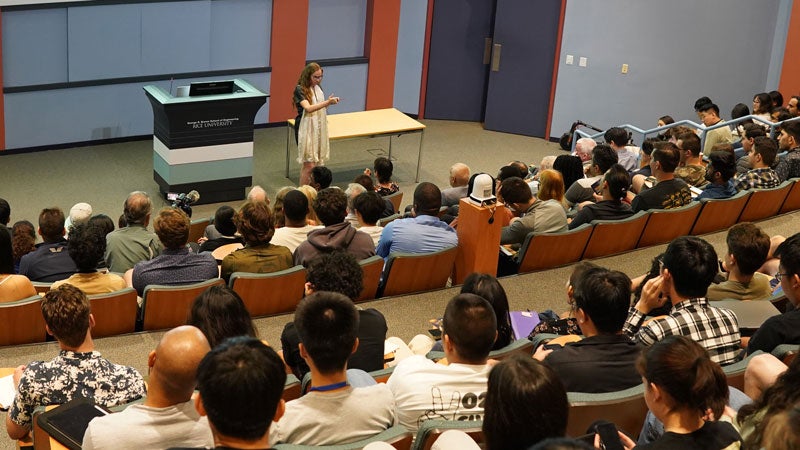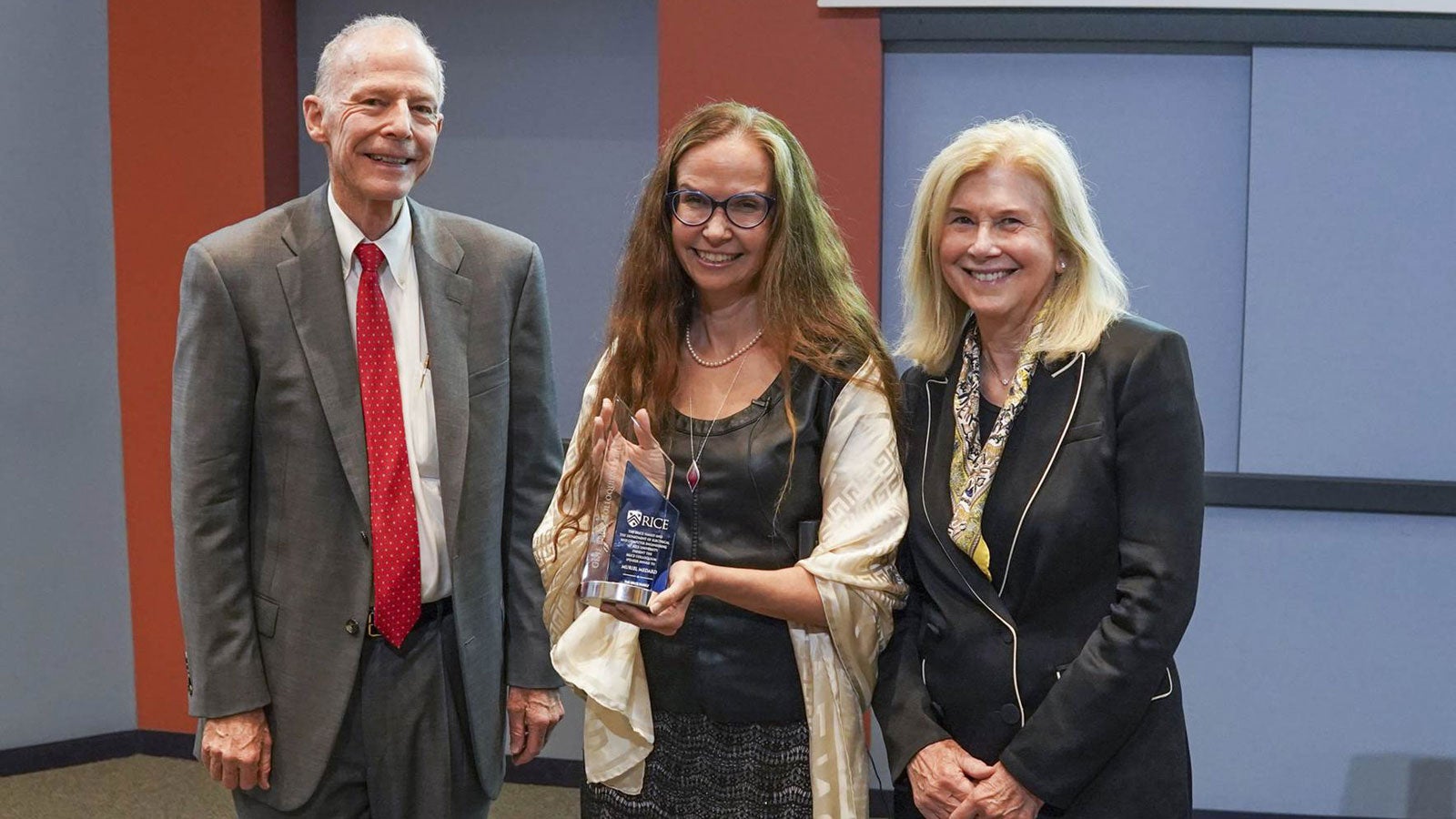More than 220 students and faculty members attended the lecture delivered by Muriel Médard as part of the Department of Electrical and Computer Engineering’s (ECE) annual Gene Brice Colloquium Series.
Médard is the NEC Professor of Software Science and Engineering in the School of Engineering and professor of electrical engineering and computer science at MIT. Her talk on Aug. 24 was titled “Towards Opening Up the Next Generations of Communications — Modularization for Innovation.”
“What is the role of standards in future communications?” Médard asked. “I want to propose a vision of standards to help ensure reliability and room for innovation. I argue that standards can successfully concentrate on purely functional matters, relying on modular APIs, rather than being prescriptive about methods, which often embed inefficient legacy technologies.”

API — application programming interface — refers to software with a distinct function. Interface is a contract of service between two applications which defines how the two communicate with one another. Médard gave examples of how this scheme is based on reliable transport with network coding, on universal decoding chips and on optimal modulation.
At MIT, Médard leads the Network Coding and Reliable Communications Group in the Research Laboratory for Electronics and serves as chief scientist for Steinwurf, a software company she co-founded in Denmark. She holds more than 60 U.S. and international patents.
She is a member of the National Academy of Engineering and the German National Academy of Sciences Leopoldina, and a fellow of the National Academy of Inventors, the American Academy of Arts and Sciences and of the Institute of Electrical and Electronics Engineers.
Médard spent a day and a half at Rice, meeting with several groups of students including those in Rice Wireless, and held a mentoring session with female graduate students in ECE.
The lecture series is named for William E. (Gene) Brice, who earned his B.S. in electrical engineering from Rice in 1937.

